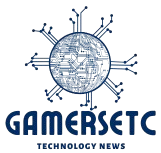RALEIGH, NC — Clad in Carolina Hurricanes sweaters, dozens of members from the Carolina Capital Crew carefully stickhandled in a makeshift arena on the South Plaza of PNC Arena on Wednesday, learning the basics of ball hockey on a warm afternoon in Raleigh, North Carolina.
The event was a first step in a legacy to the 2023 Navy Federal Credit Union NHL Stadium Series. The NHL and the Hurricanes will contribute a joint donation of $50,000 to long-term sustainable ball hockey programming for underrepresented communities in Raleigh, with a focus on growing sled hockey and special hockey.
The program reflects the commitment of the Hurricanes and the NHL to create another entry point for children to learn the sport through access to ball hockey as part of a larger mission to make a positive impact in the community on and off the ice throughout the region.
[RELATED: 2023 NHL Stadium Series coverage]
“It will cater to individuals and youth of all abilities, specifically targeting those with special needs and physical needs,” said NHL vice president of community development and growth Jeff Scott. “One way to engage in hockey off the ice is ball and street (hockey). We want to provide opportunities around that. We want to make sure these kids have access to the sport at no cost.”
The Hurricanes play the Washington Capitals in the Stadium Series at Carter-Finley Stadium on Saturday (8 p.m. ET; ABC, ESPN+, SN360, TVAS2).
In addition to Capital City Crew, funding will support Triangle Special Hockey and Hurricanes Sled Hockey.
Capital City Crew, part of Boys & Girls Clubs Serving Wake County, has 65 kids playing in a fully funded ice hockey program that draws from seven clubs. But the program, which has been in place for 12 years, has scaled back from more than 100 kids in recent years because of budget constraints and lack of access to ice time.
Video: Hurricanes, NHL talk donation, hockey programs in NC
“What this does is gives the kids another place to play,” said John Scott, the founder and director of the Capital City Crew. “At the Boys & Girls Clubs, there is only so much space.”
The donation will cover a two-part investment.
“One part is for our industry growth fund, which is to actually build a ball hockey facility,” said Jeff Scott. “What we’re announcing today is an investment to support the programming once the rink is developed.”
An announcement about the new facility is expected in the coming weeks. One of the primary objectives in promoting ball hockey is the keeping the cost to a minimum.
“We want to make sure the kids have access to the sport with no cost, whether it’s allocated to transportation or equipment,” Jeff Scott said. “We want to eliminate as many barriers to entry into the sport as we can, so that children from underrepresented communities and backgrounds have an opportunity to engage in the sport.”
Without the need for ice time and equipment, the Boys & Girls Club can reach more children.
“We need sticks, we need balls, we need nets,” John Scott said. “That’s the best part about ball hockey. That’s all you really need.”
The Hurricanes are celebrating 25 years in North Carolina.
“We can’t do this alone,” general manager Don Waddell said. “The support that we have throughout the Triangle area has been tremendous. It’s not just the money we care about, it’s the people we’re giving it to. We are more than a hockey team. We want to leave our legacy, along with the National Hockey League, with everyone that chooses to play the game of ball hockey.”
The legacy initiative is an ongoing philanthropic endeavor through which the League and its member clubs provide support to community organizations in the host city of each NHL event.
Since 2003, the NHL, its clubs and partners have donated more than $6 million to communities across North America. Projects have aided thousands of hospital patients in recovery, helped at-risk youth and families gain better access to educational and vocational training, and provided greater access to people of all ages to learn and play hockey.

